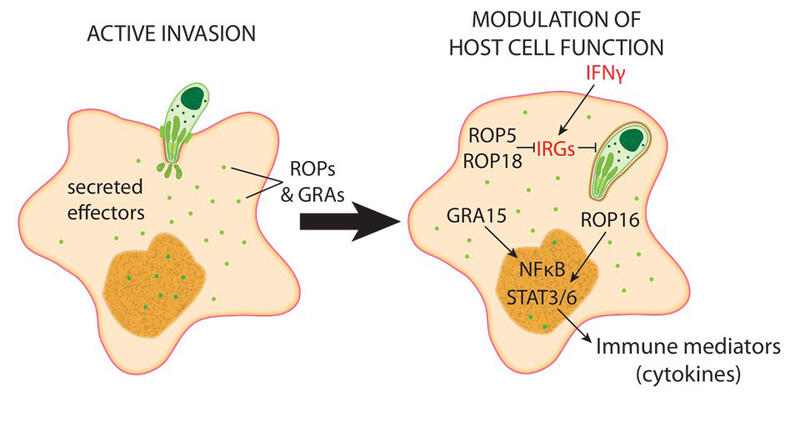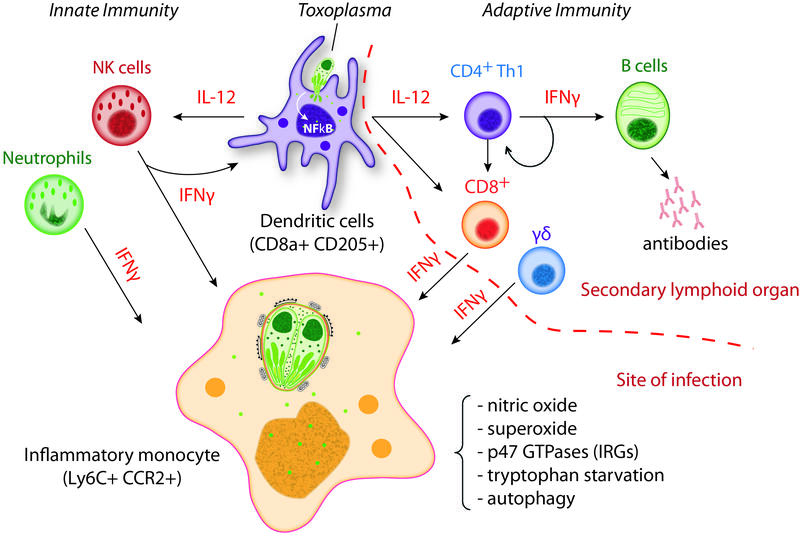In the Jensen laboratory, we study the immunology and pathogenesis of the obligate intracellular parasite Toxoplasma gondii, the causative agent of human toxoplasmosis. Toxoplasma has been dubbed the “ubiquitous” parasite because it infects all species of mammals, a variety of birds and a third of the human population. How this wide spread parasite is able to achieve parasitism and yet maintain host survival across such a wide host range is the subject of ongoing investigation. We use genetic, molecular and immunological approaches to identify parasitic virulence factors that modulate a range of immunologically based phenotypes. These phenotypes include intestinal inflammation, macrophage function, T cell stimulation and the ability of Toxoplasma to evade immunological memory responses (here and here). The diverse host range that Toxoplasma encounters has generated polymorphic parasite virulence factors tailored to manipulate the immune systems of various species around the globe. By studying these virulence factors, what they target and how they work, we believe novel aspects about the host immune system can be learned.

Fueling our work is the fact that parasitic diseases are a major public health problem in the developing worlds and progress in developing treatments has been slow. For example, nearly half (~45%) of all childhood deaths related to infection are due to eukaryotic pathogens and yet to date (2016) there is only one partially protective vaccine in use for any human parasitic disease (the Malaria RTS,S vaccine with 27% efficacy). Thus, we are using Toxoplasma as a model to understand requirements for host immunity to eukaryotic pathogens. Due in part to the life-cycle complexity of most parasites, it is difficult to achieve immunity using current vaccination protocols, which almost exclusively work through the generation of neutralizing antibodies. However, not all pathogens can be restricted in this way alone. Instead control of many parasites like Toxoplasma require the additional help of cytotoxic T cells, which are tightly regulated and can be “turned off” during sustained periods of infection. Using host genetic screens and immunological assays we are identifying ways to optimize T and B cell mediated memory responses against highly virulent strains of Toxoplasma as we search for a protective vaccine against parasites. Below is a schematic summarizing described immunological pathways required for resistance to Toxoplasma, notice the central importance of IFN-gamma.

Toxoplasma is therefore a fantastic model parasite to study host-pathogen interactions. We hope results generated in our lab will have far reaching implications for the treatment of human parasitic diseases, and improve our understanding of basic immunological processes. Contact the Jensen lab if you are interested in what we do.
Questions
1) Can we design a protective vaccine against poorly controlled parasitic infections?
2) What are the host and parasite genes that influence susceptibility to primary and secondary Toxoplasma infection?
3) How does Toxoplasma manipulate adaptive immunity?
